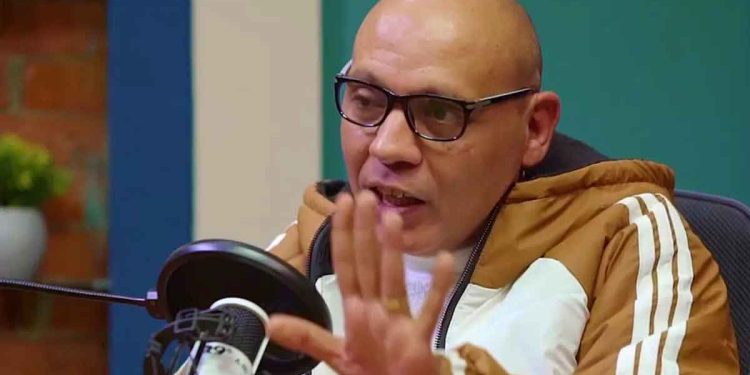Egypt’s National Security Agency arrested journalist and writer Hany Sobhi from his home in the Marg district of Cairo on Wednesday, following two posts he shared on his Facebook page. His phone has been switched off and his whereabouts remain unknown since the arrest.
His wife, Mary Naim, told local media that three men in plain clothes knocked on their door at around 2 a.m., saying they needed to speak to her husband “for just five minutes downstairs.” They then took him away in a car without presenting any arrest warrant or identifying the authority they belonged to. “They took him and drove off. Since then, his phone has been off and we haven’t heard from him,” she said.
Moments before his arrest, Sobhi posted a short message on Facebook that read: “They’re arresting me at Marg Police Station.” The post was deleted soon after, and his page was taken down, cutting off all contact.
According to sources close to the family, the arrest was prompted by two Facebook posts. In the first, Sobhi discussed the story of the Golden Calf in Abrahamic religions after a gold-painted statue of Egyptian President Abdel Fattah el-Sisi was unveiled in Belgium; a post he described as a symbolic, religious reflection, not a political statement. The second was a satirical comment directed at media figure Dalia Ziada, who stirred controversy after praising the “resilience of the Israeli people” while ignoring the humanitarian catastrophe in Gaza.
Since his detention, Sobhi’s wife has spent hours searching for him at the Marg Police Station and the Heliopolis Prosecution Office, but his name appeared in no official records. The family now fears he is being held incommunicado, in clear violation of the Egyptian Constitution, which prohibits detention without judicial order and states in Article 54 that “personal freedom is a natural right, safeguarded and inviolable.”
Sobhi’s case reflects a widening crackdown on dissenting voices in Egypt, particularly against writers and bloggers who use online platforms to express their views. Instead of countering ideas with dialogue, the state continues to respond to free expression with repression, further eroding what remains of peaceful public discourse.
Hany Sobhi is regarded as one of Egypt’s emerging literary voices, known for his humanistic and socially conscious writing. His short story collection “Soul of the Soul” (2024) explored themes of war, justice, and the struggle against genocide, including reflections on Gaza. His 2020 novel “At a Café in Shubra” portrayed everyday life in one of Cairo’s historic districts.
Sobhi’s arrest serves as a new test for Egypt’s commitment to freedom of opinion and expression, and as a mirror reflecting the precarious condition of writers and intellectuals in a country where free words are treated as crimes.


























